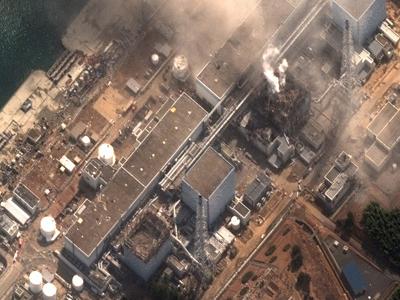
A Japanese parliamentary panel has said in a report the crisis at the Fukushima nuclear plant was “a profoundly man-made disaster”.
The disaster “could and should have been foreseen and prevented” and its effects “mitigated by a more effective human response”, it said.
The report catalogued serious deficiencies in both the government and plant operator Tepco’s response.
It also blamed cultural conventions and a reluctance to question authority.
The six-reactor Fukushima Daiichi nuclear plant was badly damaged after the 11 March 2011 earthquake and tsunami knocked out cooling systems to reactors, leading to meltdowns and the release of radioactivity.
Tens of thousands of residents were evacuated from an exclusion zone around the plant as workers battled to bring reactors under control. Tepco declared the reactors stable in December 2011.
Members of the Fukushima Nuclear Accident Independent Investigation Commission were appointed to examine the handling of the crisis and make recommendations.
The investigation included 900 hours of hearings and interviews with more than 1,000 people.

In the panel’s final report, its chairman said a multitude of errors and willful negligence had left the plant unprepared for the earthquake and tsunami.
“Although triggered by these cataclysmic events, the subsequent accident at the Fukushima Daiichi Nuclear Power Plant cannot be regarded as a natural disaster,” it said.
“It was a profoundly man-made disaster – that could and should have been foreseen and prevented.”
After six months of investigation, the panel concluded that the disaster “was the result of collusion between the government, the regulators and Tepco” founded in the failure of regulatory systems.
It said that the situation at the plant worsened in the aftermath of the earthquake because government agencies “did not function correctly”, with key roles left ambiguous.
It also highlighted communication failures between Tepco and the office of then Prime Minister Naoto Kan, whose visit to the site in the immediate aftermath of the earthquake “diverted” staff.
The report said regulators should “go through an essential transformation process” to ensure nuclear safety in Japan.
“Japan’s regulators need to shed the insular attitude of ignoring international safety standards and transform themselves into a globally trusted entity,” it said.
The report made several recommendations including:
• Permanent parliamentary monitoring of the nuclear regulatory body
• Reforming the crisis management system, with more government responsibility for public welfare
• Reforming nuclear energy laws to meet global safety standards
• Monitoring nuclear operators and developing a system for independent investigative bodies
All of Japan’s nuclear plants were shut down in the wake of the disaster. But on Sunday the first reactor was restarted in the town of Ohi in Fukui prefecture.
The restart sparked large protests in Tokyo but Prime Minister Yoshihiko Noda urged support for the move, saying a return to nuclear power was essential for the economy.
The government is continuing to assess whether other nuclear plants are safe to be restarted.